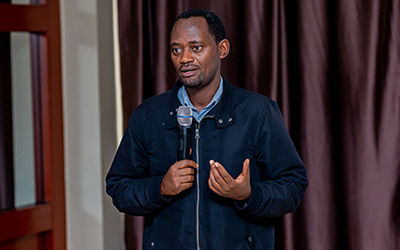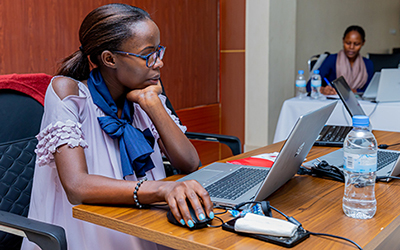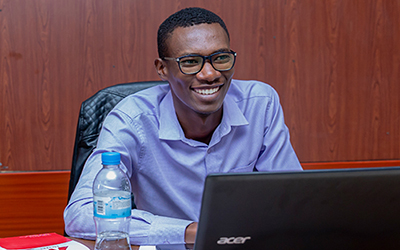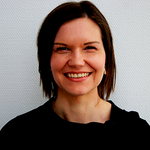Blog
New country on the SOUTHMOD map
Meet our tax-benefit microsimulation team in Rwanda!
How can Global South countries improve their tax and social protection systems? One way is to take advantage of tools that help assess the impact of different policies. Rwanda is the latest country to join the SOUTHMOD collaboration, which will enable UNU-WIDER and Rwanda Revenue Authority (RRA) to take advantage of each others’ expertise in tax and benefits research. Meet the national team behind the RWAMOD model!
Developing a tax-benefit microsimulation model for Rwanda helps to explore ways in which national development goals can be achieved in a cost-effective manner, and to assess the poverty and inequality effects of social security arrangements.
The model is designed for everyday use by different ministries and government institutions, and it can also be leveraged for academic research. To make this happen, the Rwandan national team in collaboration with UNU-WIDER and Southern African Social Policy Research Insights (SASPRI) will organize regular training events on the model. The first training was organised in Kigali in October 2022, with 12 local participants from the government, academia and think tanks.
Who are the members of the RWAMOD national team, and why do they find the model useful?
John Karangwa
 John is the head of Research and Policy Analysis Unit at RRA, and the RWAMOD team leader. With over ten years of experience in the public sector, John has expertise in both official statistics and revenue administration. He has also worked with civil society organizations as a monitoring and evaluation specialist. John holds a Master’s degree in Applied Economics from University College Dublin (UCD).
John is the head of Research and Policy Analysis Unit at RRA, and the RWAMOD team leader. With over ten years of experience in the public sector, John has expertise in both official statistics and revenue administration. He has also worked with civil society organizations as a monitoring and evaluation specialist. John holds a Master’s degree in Applied Economics from University College Dublin (UCD).
‘I have already learned many lessons through this modeling collaboration, one of which is the power of collaboration in bringing together people with varying levels of experience, leadership, and technical skills to work towards a common goal.’
‘In the beginning, it was not very clear to me how a revenue administration could benefit from this partnership. The SOUTHMOD model sounded like a tool that would be used to simulate the impacts of social protection policies, which have nothing to do with revenue collection. However, as we continued developing the model and incorporated various tax policies, including specific tax exemptions, I began to see the real potential of the model for us. I learned how the model can help us not only analyse the post-implementation phase of policies, but also the potential impact of policies that have not yet been introduced in Rwanda.’
‘The ability to model policies is dependent on the availability of data. With this in mind, I see a huge potential for using RWAMOD by various institutions to model the impacts of policies in their respective areas. At RRA, for example, we are interested in analysing the effects of upshifting the Pay-As-You-Earn (PAYE) tax brackets and the impact of various tax reliefs that were enacted in response to COVID-19.’
‘A few things stood out for me from the first training event: first, the ease with which participants noticed how the model could be used to model policies in their respective offices. This kept them highly motivated throughout the training. Additionally, despite being versatile, they found the model to be also straightforward and flexible.’
Naphtal Hakizimana
 Naphtal is a Research and Policy Analysis Officer at RRA. He has a Master’s degree in Economics and has previously worked as a consultant on research and related activities.
Naphtal is a Research and Policy Analysis Officer at RRA. He has a Master’s degree in Economics and has previously worked as a consultant on research and related activities.
‘Working with UNU-WIDER and SASPRI has been an amazing experience for me. I have learned a lot from this team and now have a clear understanding of how tax-benefit microsimulation models are built and used.’
‘I am excited to engage with all concerned stakeholders to demonstrate the effects on poverty and inequality of implementing different policies in Rwanda, such as reducing or increasing certain tax rates.’
Jeannette Mukangango
 Jeannette is a Research Consultant working for the RWAMOD team. She has a Master's degree in Mathematical Sciences from the African Institute of Mathematical Sciences (AIMS Rwanda). Previously, Jeannette completed professional internships at the National Institute of Statistics of Rwanda (NISR) and at RRA as a Data Science intern.
Jeannette is a Research Consultant working for the RWAMOD team. She has a Master's degree in Mathematical Sciences from the African Institute of Mathematical Sciences (AIMS Rwanda). Previously, Jeannette completed professional internships at the National Institute of Statistics of Rwanda (NISR) and at RRA as a Data Science intern.
‘I am grateful for the opportunities resulting from this collaboration to gain experience with the European model EUROMOD, building and running the RWAMOD model, and interpreting the modelling results.’
‘The RWAMOD training helped me to better understand how the model works, especially through guiding and answering questions by the training participants. Based on feedback, the training was helpful and interesting, but participants would have appreciated more time to absorb the information.’
Theogene Harerimana
 Theogene is also a RWAMOD team Research Consultant and has a Master’s degree in Mathematical Sciences from AIMS. Previously, he completed a professional internship as a Research Assistant at the International Centre for Tropical Agriculture (CIAT) and worked at the National Institute of Statistics of Rwanda (NISR) as a field worker and enumerator.
Theogene is also a RWAMOD team Research Consultant and has a Master’s degree in Mathematical Sciences from AIMS. Previously, he completed a professional internship as a Research Assistant at the International Centre for Tropical Agriculture (CIAT) and worked at the National Institute of Statistics of Rwanda (NISR) as a field worker and enumerator.
‘Working on developing the RWAMOD in partnership with UNU-WIDER and SASPRI researchers has been a great experience. I have learned a lot and gained new skills on various aspects of the model, including how to navigate and run it and interpret the output.’
‘The first training on RWAMOD was valuable because it allowed me to deepen my understanding of the model through skills sharing, participants' questions, and specialists' answers.’
The specialists in the RWAMOD collaboration are Research Associate Jesse Lastunen from UNU-WIDER, UCLouvain PhD student Antoine de Mahieu, and Michael Noble and Gemma Wright from SASPRI. The next steps for the team include additional tweaks to the model in collaboration with the Ministry of Finance (MINECOFIN) and preparation for the model launch in 2023. Stay tuned!
The views expressed in this piece are those of the author(s), and do not necessarily reflect the views of the Institute or the United Nations University, nor the programme/project donors.
 Join the network
Join the network





